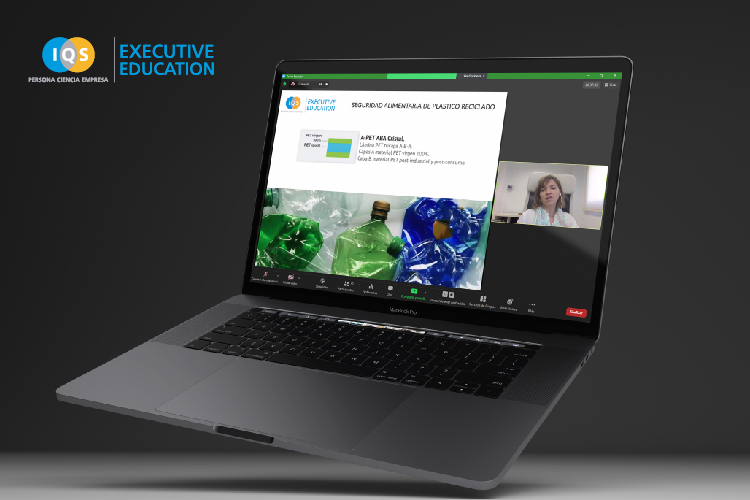This is the main conclusion of the Masterclass “How to ensure circular and safe food packaging,” organised by IQS Executive Education on 13 May.

Sustainability has gone from being an interest to an obligation for all companies, including those involved in packaging. However, this sector must progress even more to achieve the goals set by the EU and to reduce the impact of humans on the planet.
This is the main conclusion of the Masterclass “How to ensure circular and safe food packaging,” organised by IQS Executive Education on 13 May. Montse Castillo, the coordinator of the IQS Executive Education Master in Packaging Management and a member of the sustainability and packaging committee of the AECOC, commented on the latest trends in the sector and their consequences for the environment during the Masterclass.
Currently, every European citizen generates around 185 kilos of waste and 280 kilos of food loss annually. To alleviate this excess, institutions have been working since 2015 to implement new circular economy policies focused on recovery, reaffirmed in the European Green Deal from two years ago.
“Regulatory pressure has been very important to move forward, but so has market pressure. Consumers are demanding more and companies have to be consistent with their actions so they do not fall behind,” added Castillo.
Spain has joined the European circular economy policies, establishing the Spanish circular economy plan, transposing the latest modification of the packaging and packaging waste directive with a clear impact from the Ecoembes green point fees and with the new Special Tax on the Non-Reusable Plastic Containers, which will come into effect this July.
Circularity requires new materials accompanied by new packaging systems
Castillo explained that companies must promote a new circular packaging strategy that works with biodegradable, compostable, recycled, and recyclable products. In this sense, she also indicated the addition of new bio-based materials and highlighted that the solution is based on applying the best strategy for each application considering the most appropriate product end life and ensuring more effective recovery.
However, the packaging expert highlighted the importance that we cannot only work on using new materials as the only solution. To keep improving sustainability, she indicated that “we also have to design consumption systems that allow us to minimise the use both of materials as well as energy,” and to create new concepts and modes of consumption, starting by reusing when feasible.
AIQS Alumni creates the Professional Packaging Group for former IQS students
During the webinar, AIQS announced the launch of the new Packaging Professionals Group with AIQS Alumni Life, the community that is celebrating its one hundred year anniversary this year in the sphere of science and management, in collaboration with IQS Executive Education. This professional group will bring together alumni who are experts on the issue to discuss and uncover the latest trends in the sector.
“Professional groups are the heart and soul of AIQS Alumni Life. Being able to count on the Packaging Professionals Group will allow us to bring together alumni who now work in departments of some of the biggest companies in the world and who have brought recognition to the IQS name,” claimed Jordi Marti, president of AIQS Alumni Life.










